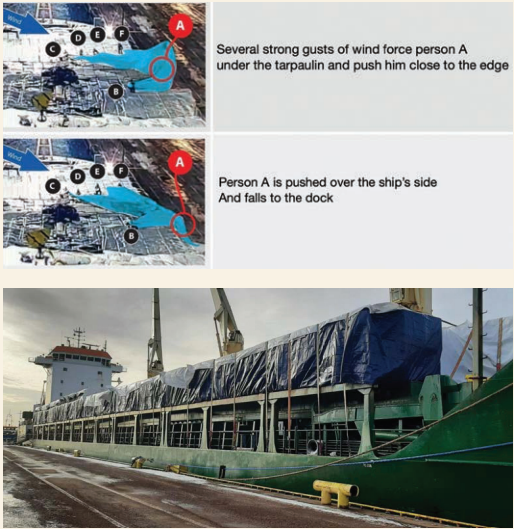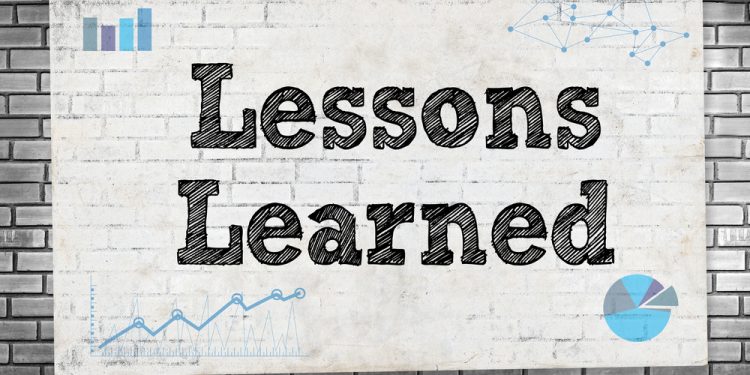The Nautical Institute presents an incident where, a general cargo vessel was loaded with timber in the holds and on deck. Before departure, crew were securing tarpaulins over the deck cargo of timber.
Conditions were windy and the deck crew working on top of the timber bundles did not have fall protection. At one point, the six crew (A to F in the reconstruction photo) realised that one of the tarpaulins which had already been spread out needed to be rotated, which also meant they moved away from their original positions. During the rotation only two crew members were holding down the windward side of the tarpaulin; one in each corner, which reduced the crew’s ability to control the tarpaulin.
Person A, who was moving aft along the edge of the deck, was caught in the tarpaulin, which then caught the wind and acted as a sail. The other crew present were likewise unable to withstand the forces that acted on the tarpaulin. As a result, person A was pushed over the edge of the deck and fell to the dock. The crew immediately administered first aid to the victim until port rescue personnel arrived. The victim was transported to hospital by helicopter but was declared deceased the next day from injuries sustained.

The official investigation found, among other things, that time pressure may have played a role in the accident. The deck crew had noticed that the wind was increasing and they considered the working conditions to be risky. Yet, since an early morning departure for the next day had been announced, everyone was concentrated on ‘getting the job done’ during the evening.
Another finding of the investigation was that even though the work at height checklist had been completed (i.e. crew were to use fall protection equipment), this was not done in practice. The crew found it cumbersome to use a safety line during this type of operation.
Lessons learned
- Time pressure is no reason to relax safety standards, as tempting as it may be to ‘get the job done’.
- Safety leadership means ensuring good practices and that the vessel’s SMS is always put into practice.
- A checklist mentality – where you consider ticking the boxes more important than the task they relate to – must be avoided. Remember, most checklists re the result of a risk assessment that was done to reduce harm. Only check ‘yes’ on something if you have actually done it!































































